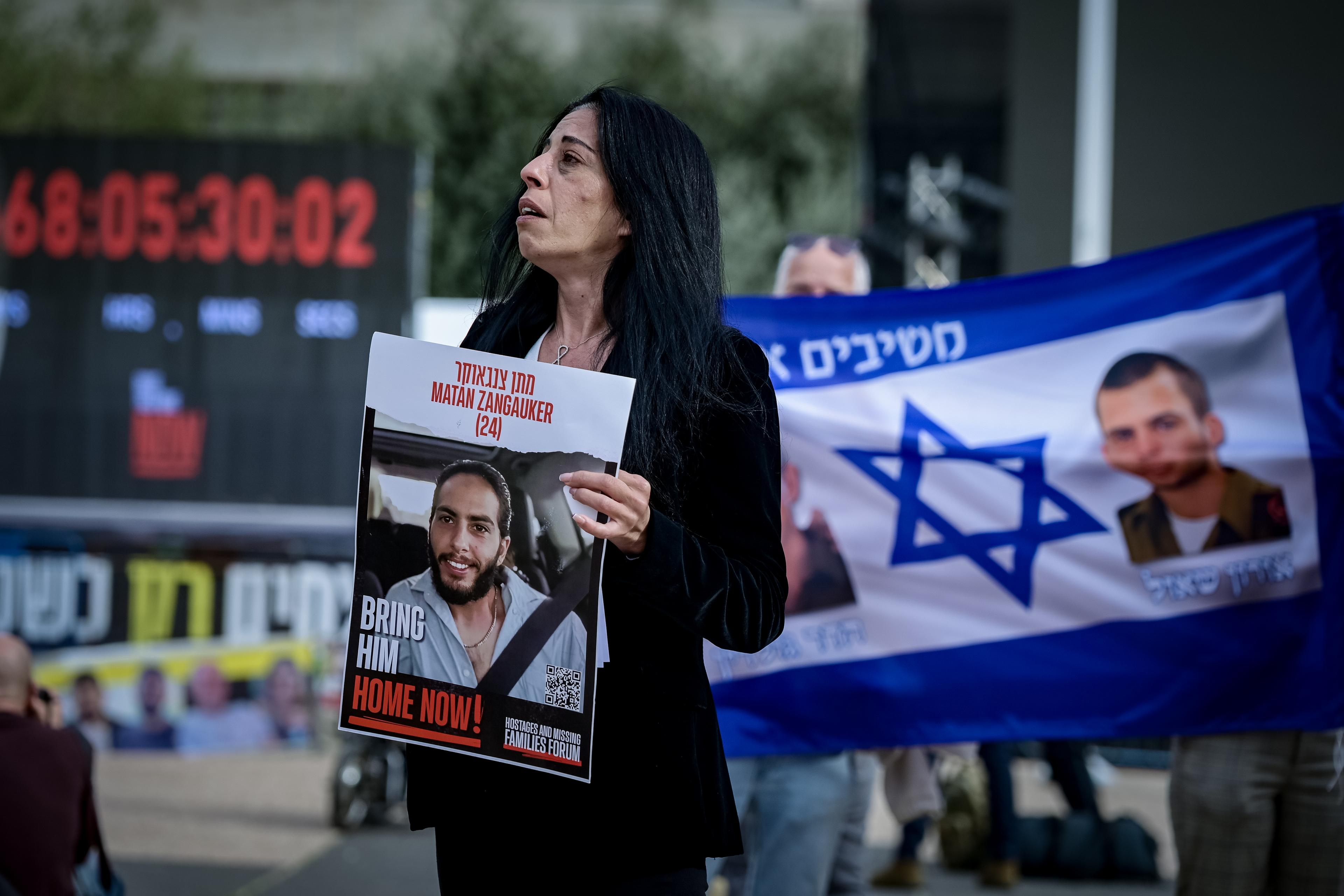We are on our way
Israeli Hostages: Step-by-Step Release Plan Revealed
At the time of writing, Hamas has still not released the list of the specific prisoners which will be released tomorrow. Netanyahu replied to this delay, setting, "We will not proceed with the framework as long as we do not receive the list of hostages to be released, as agreed. Israel will not tolerate violations of the agreement. The sole responsibility lies with Hamas."

Military officials have outlined the detailed process for tomorrow's anticipated release of three Israeli hostages from Gaza, marking the first phase of the latest exchange deal.
According to senior IDF spokesperson Doron Kadosh, the carefully orchestrated operation will involve multiple stages of transfer and verification:
The process begins inside Gaza, where members of an elite IDF unit will meet Red Cross officials who will have custody of the hostages. This crucial first contact will trigger Israel's initial confirmation of the hostages' identities.
Once the group crosses into Israeli territory, military officials will issue a second public announcement confirming their safe arrival. The freed hostages will then be taken to one of three specially prepared reception centers along the Gaza border - either Zikim, Re'im, or Kerem Shalom - depending on their exit point from Gaza.
The final stage involves transporting the released hostages either by vehicle or helicopter to a predetermined hospital, where they will finally reunite with their waiting families. Military officials will make a final public announcement once the hostages reach the hospital facility.
The entire operation, from first contact in Gaza to arrival at the hospital, is expected to take approximately two hours, according to IDF estimates.
The military's detailed public release of this information appears aimed at providing transparency during this sensitive operation while managing public expectations about timing and procedures during tomorrow's anticipated release.
This planned release represents the first group of hostages to be freed under the latest exchange agreement between Israel and Hamas, mediated by international partners.
At an emotional press conference outside the Rabin Gate in Tel Aviv, families of hostages held in Gaza issued urgent demands to the government following yesterday's cabinet approval of a comprehensive hostage deal.
"The government approved a comprehensive agreement last night to end the war and return all hostages. After a long and difficult struggle, we've reached our first milestone - there is hope," said Einav Tzangauker, whose son Matan remains in captivity. "But extremists in the government are already trying to derail the deal. They want to resume fighting, effectively sentencing the remaining hostages to death," she warned.
Tzangauker also expressed concern about reports that "Netanyahu made promises to Smotrich that contradict the war's objectives and endanger the agreement."
Danny Elgart, father of captive Itzik Elgart, criticized the government's handling of previous negotiations. "What we've been saying for months has proven true. Netanyahu and the extremists torpedoed earlier deals, and hostages died. This agreement could have been implemented six months ago," he stated. In a direct appeal to President Trump, he added: "Thank you for your efforts to end the war and bring our loved ones home. Please ensure this agreement is fully implemented."
Yifat Calderon, whose cousin Ofer is expected to be among those released, expressed cautious hope: "We pray Ofer returns - alive, I must add, as we have no idea of his condition - and reunites with his children, two of whom were also in captivity."
As of now, Israel has not received the list of three female hostages scheduled for release tomorrow following the Gaza ceasefire. Without this list, the process of releasing Palestinian prisoners cannot proceed, potentially delaying the entire deal's implementation.
The families emphasized they would continue their efforts until all hostages are returned. "The Israeli people want all hostages home," Calderon stated. "This is an agreement we must see through to completion. We won't let them sabotage it."
Walla! contributed to this article.